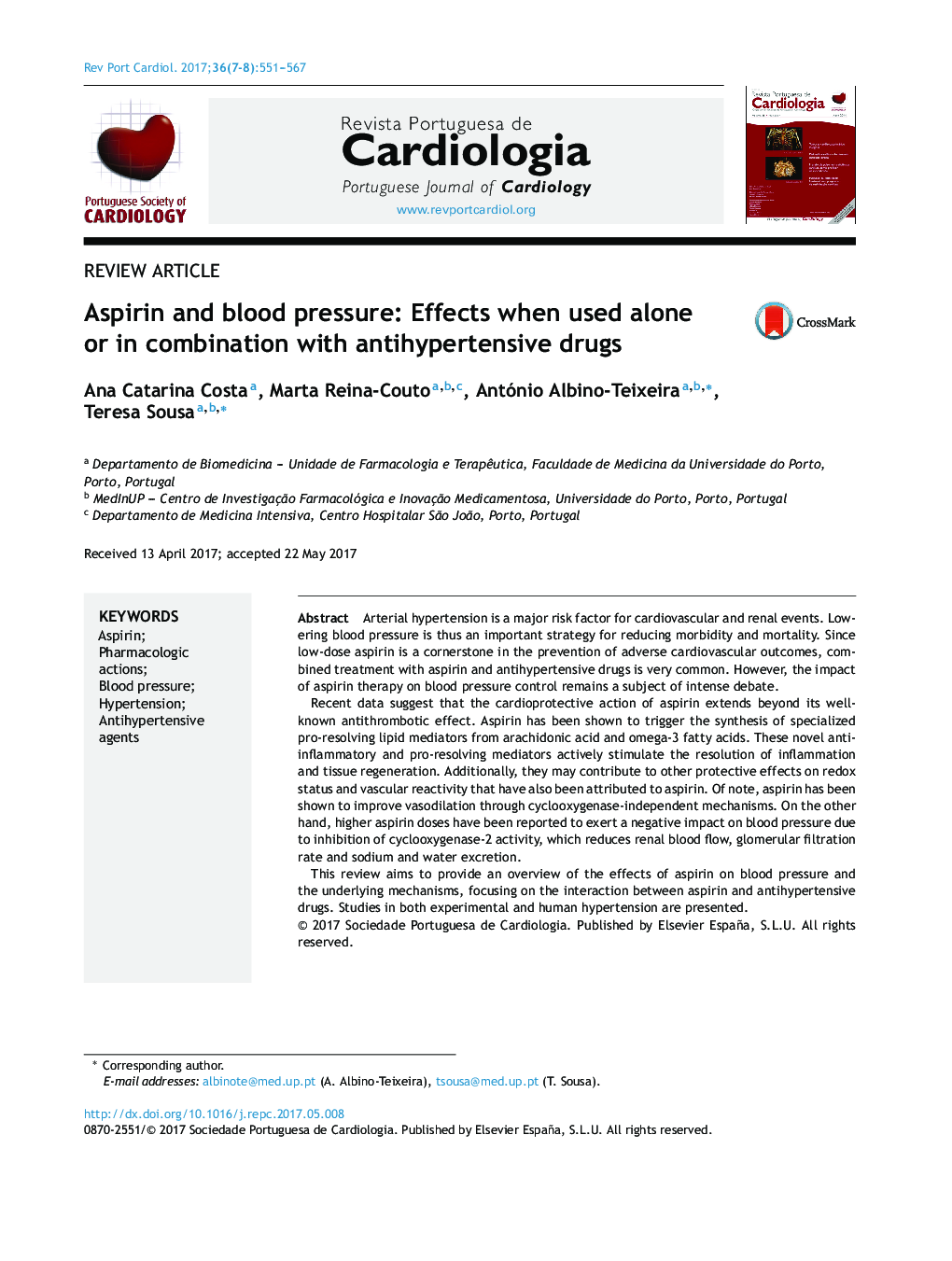| کد مقاله | کد نشریه | سال انتشار | مقاله انگلیسی | نسخه تمام متن |
|---|---|---|---|---|
| 5126428 | 1488569 | 2017 | 17 صفحه PDF | دانلود رایگان |
Arterial hypertension is a major risk factor for cardiovascular and renal events. Lowering blood pressure is thus an important strategy for reducing morbidity and mortality. Since low-dose aspirin is a cornerstone in the prevention of adverse cardiovascular outcomes, combined treatment with aspirin and antihypertensive drugs is very common. However, the impact of aspirin therapy on blood pressure control remains a subject of intense debate.Recent data suggest that the cardioprotective action of aspirin extends beyond its well-known antithrombotic effect. Aspirin has been shown to trigger the synthesis of specialized pro-resolving lipid mediators from arachidonic acid and omega-3 fatty acids. These novel anti-inflammatory and pro-resolving mediators actively stimulate the resolution of inflammation and tissue regeneration. Additionally, they may contribute to other protective effects on redox status and vascular reactivity that have also been attributed to aspirin. Of note, aspirin has been shown to improve vasodilation through cyclooxygenase-independent mechanisms. On the other hand, higher aspirin doses have been reported to exert a negative impact on blood pressure due to inhibition of cyclooxygenase-2 activity, which reduces renal blood flow, glomerular filtration rate and sodium and water excretion.This review aims to provide an overview of the effects of aspirin on blood pressure and the underlying mechanisms, focusing on the interaction between aspirin and antihypertensive drugs. Studies in both experimental and human hypertension are presented.
ResumoA hipertensão arterial representa um fator de risco major para eventos cardiovasculares e renais. Por esse motivo, a redução da pressão arterial é uma estratégia importante para a diminuição da morbilidade e mortalidade. Como a aspirina em dose baixa constitui a terapêutica base na prevenção de eventos cardiovasculares, a sua associação com fármacos anti-hipertensores é muito comum. No entanto, o impacto da aspirina no controlo da pressão arterial permanece um tema de intensa discussão.Estudos recentes sugerem que a ação cardioprotetora da aspirina não está limitada ao seu conhecido efeito antitrombótico. A aspirina ativa a sÃntese de mediadores pró-resolutivos especializados a partir do ácido araquidónico e de ácidos gordos ómega-3. Estes novos mediadores anti-inflamatórios e pró-resolutivos estimulam ativamente a resolução da inflamação e a regeneração tecidual. Adicionalmente, poderão contribuir para os efeitos protetores no estado redox e na reatividade vascular que têm sido atribuÃdos à aspirina. à de sublinhar que a aspirina parece também melhorar a vasodilatação por mecanismos independentes da inibição da cicloxigenase. Por outro lado, o uso de aspirina em doses altas parece exercer um efeito negativo na pressão arterial devido à inibição da atividade da cicloxigenase-2 e consequente redução do fluxo sanguÃneo renal, da taxa de filtração glomerular e da excreção de sódio e água.Este artigo pretende rever os efeitos da aspirina na pressão arterial e mecanismos subjacentes, com enfoque na interação entre a aspirina e os fármacos anti-hipertensores. São apresentados estudos na hipertensão experimental e humana.
Journal: Revista Portuguesa de Cardiologia - Volume 36, Issues 7â8, JulyâAugust 2017, Pages 551-567
